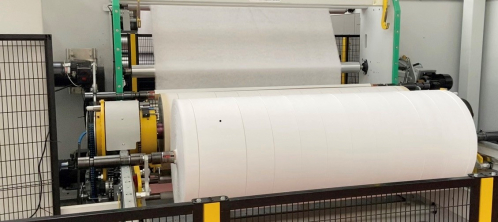When Covid-19 really hit home about six months ago, many governments realised that they did not have the supply chain in place to produce personal protective equipment (PPE) such as face masks to help stop the spread of the virus. Many nations previously imported these products from China, but as Asia needed the PPE just as much, if not more, than others at the time, it soon became apparent that each country would have to fend for themselves.
In response to this, different countries have come up with their own solutions. For example, the UK government devised an initiative to make reusable gowns for health workers in Britain, Canada’s federal government has invested more than CAD$400m in two face mask plants for the country, and the European Union (EU) also set up a PPE scheme to supply these much-needed products to hospitals in countries that are EU members.
In France, the government is issuing grants to companies who can help bolster the country’s own supply of PPE and related materials. Thanks to this, new businesses in the nonwovens sector are now sprouting up, including Meltblo France.
Created by husband-and-wife team Nicolas and Lucile Burny, Meltblo France is a young, fast-growing company that specialises in the production of meltblown nonwovens primarily for the medical sector. Like many other companies reacting to help fight Covid-19, the initial idea to launch only came about a few months ago.
“The French government wants to secure local production to avoid a supply shortage,” she says. “So, we got a grant from them to start the company because it’s best to produce in your own country if you can. Thanks to the grant, it has actually been easier to set up the company even though we are in a pandemic.”
It wasn’t just the opportunity to help out that encouraged the couple to set up Meltblo France, Nicolas Burny actually has another business in the nonwovens sector.
“Two years ago, Nicolas created a matchmaker platform for the nonwovens industry – it is a B2B platform where you can buy and sell anything that you want in the sector,” she explains. “He saw through this that the demand for meltblown has soared across the world thanks to Covid-19, so he decided to use his 30 years’ worth of knowledge and experience to produce meltblown in France.”
The company is not yet up and running; it will officially launch in April 2021. The facility will be based in Burgundy Franche-Comté, where the local government also helped to support the €4.5m venture. The company is hoping to create around 20 jobs in the area, and when fully operational, Burny says that it will have the capacity to produce 500 tonnes of meltblown each year – that’s around 500 million surgical masks.
“It’s a long process. We started about three or four months ago and we will be able to start manufacturing in April 2021,” she says. “It’s a long way to go but we have to do it for France.”
In the meantime, the couple is having discussions with big French mask producers, is installing the line (which has been supplied by the Italian firm Ramina), and is preparing the building and so on.
Although the company will begin by making meltblown for face masks, Burny says that it also has a long-term plan for when/if the demand drops. She says: “Later on, we will have new applications for liquid filtration, sound insulation and air filtration. The aim is to make high-quality French products and we are looking forward to developing products with lower environmental footprints, too.”
Sustainability is something that the business is very concerned about, hence why it is already considering ways to lower its environmental footprint. She adds: “Face masks are not degradable at the moment, unfortunately. But we must head in this direction. People throw masks everywhere and it’s awful. We can’t go on like this so we must find solutions.”


2695